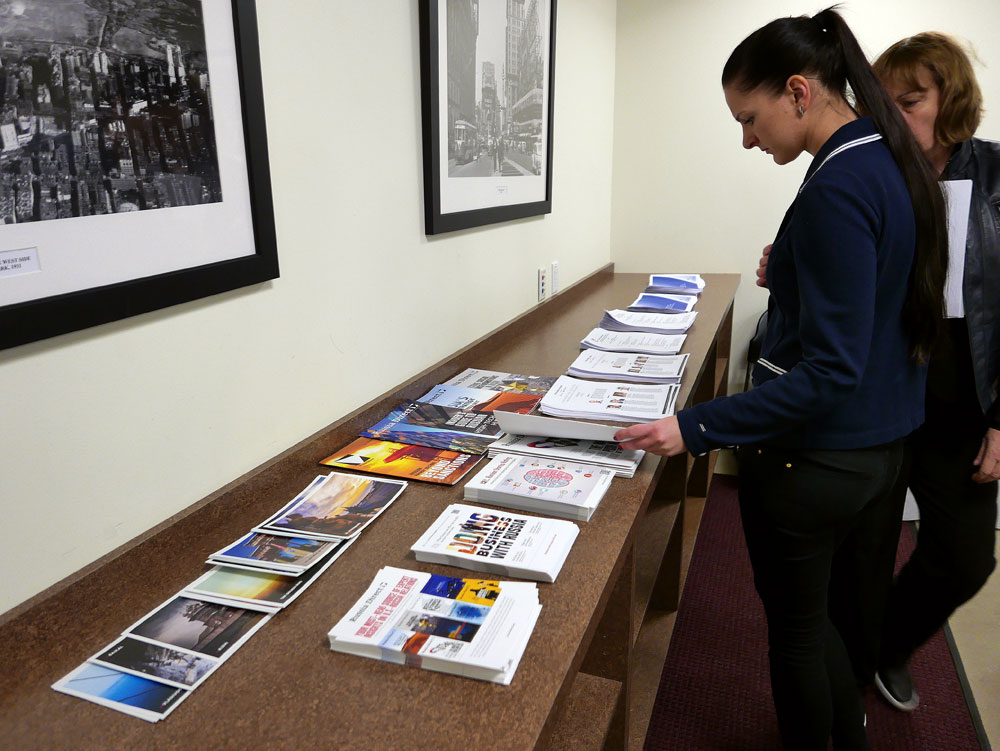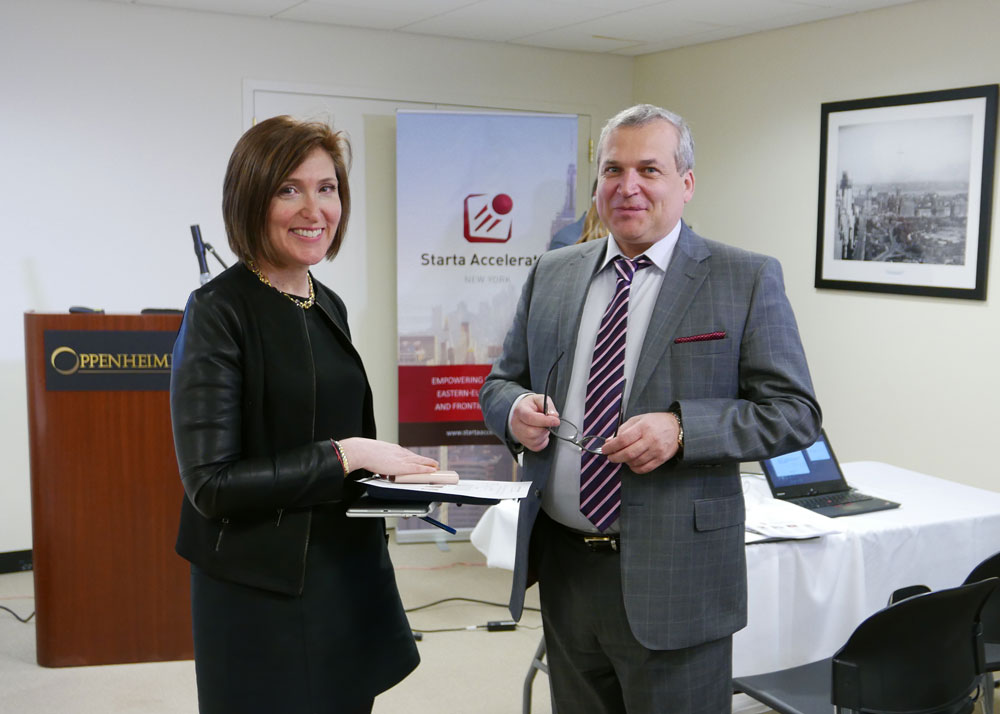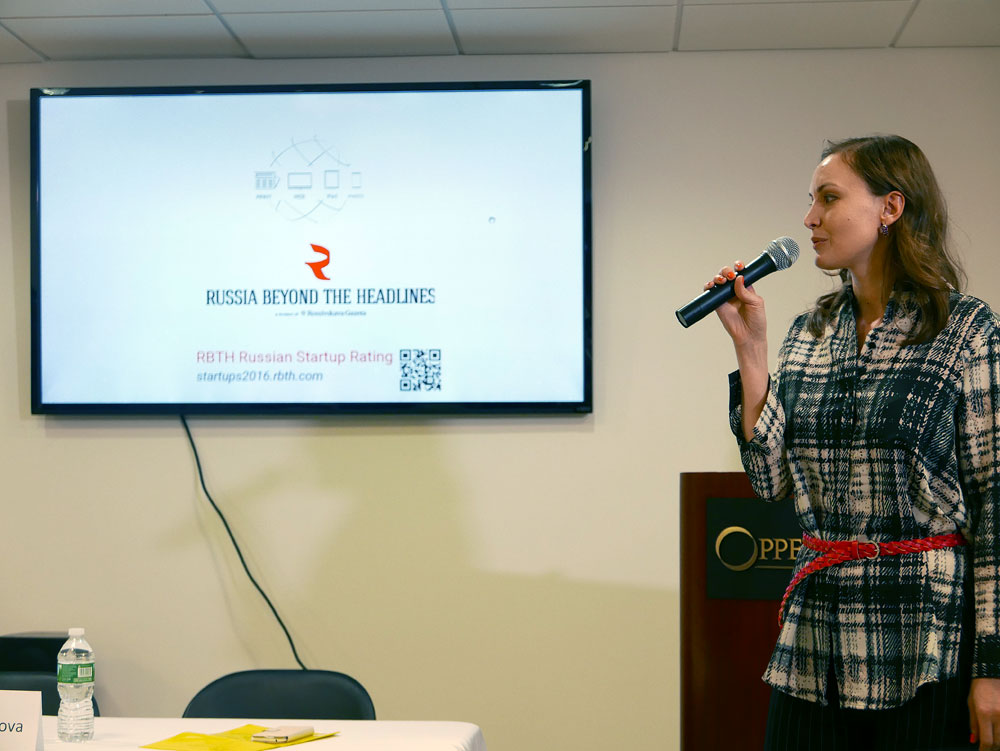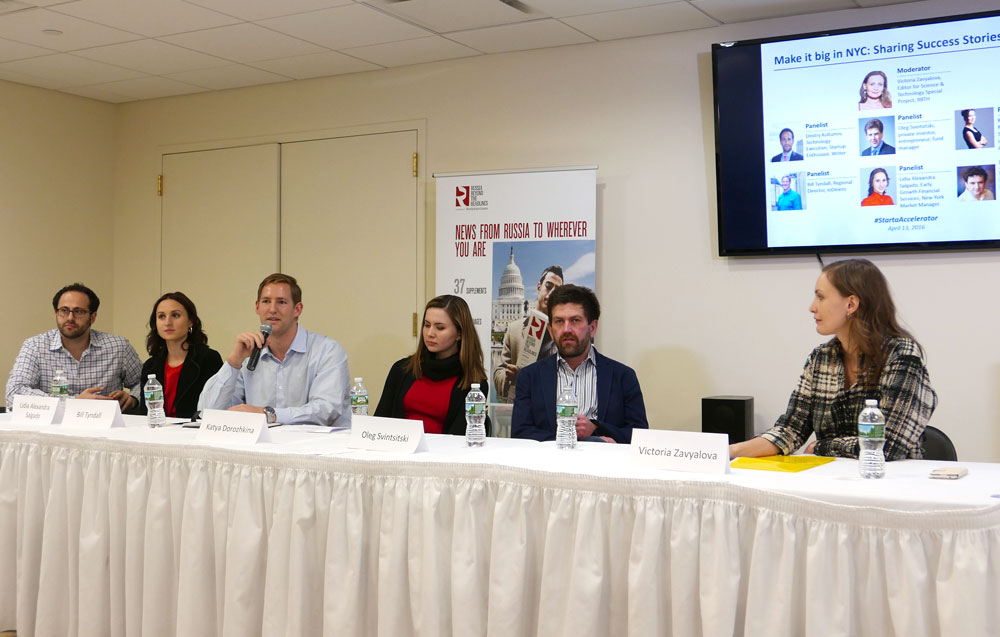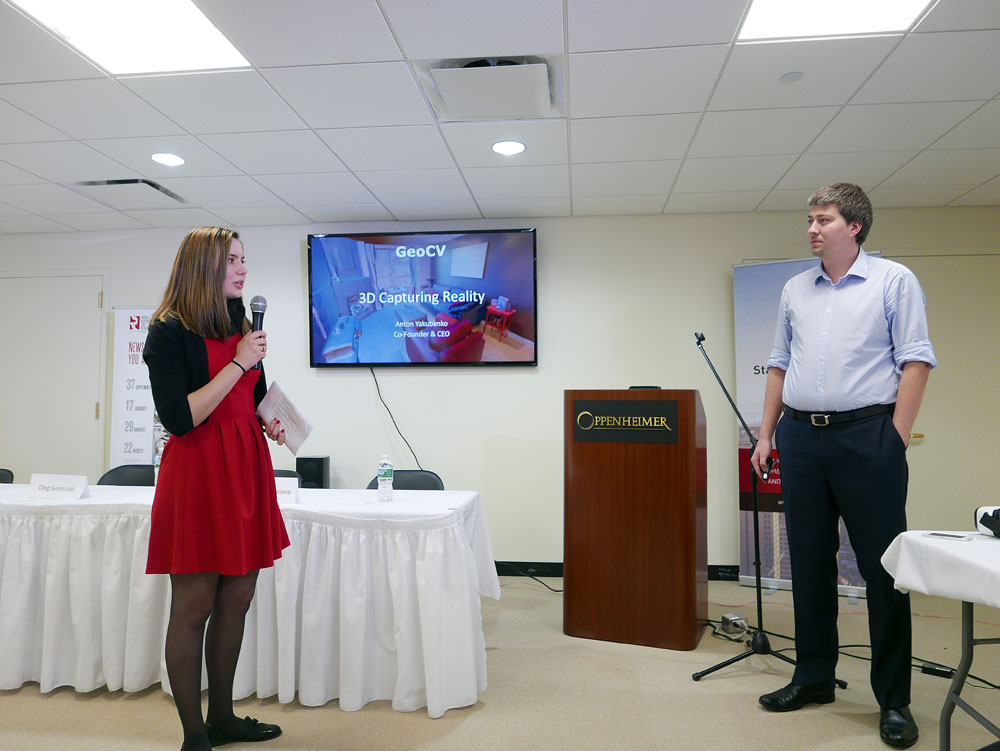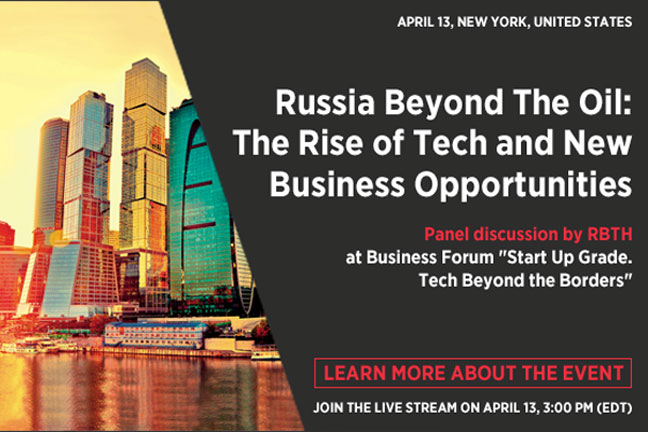RBTH brings together innovation experts in New York
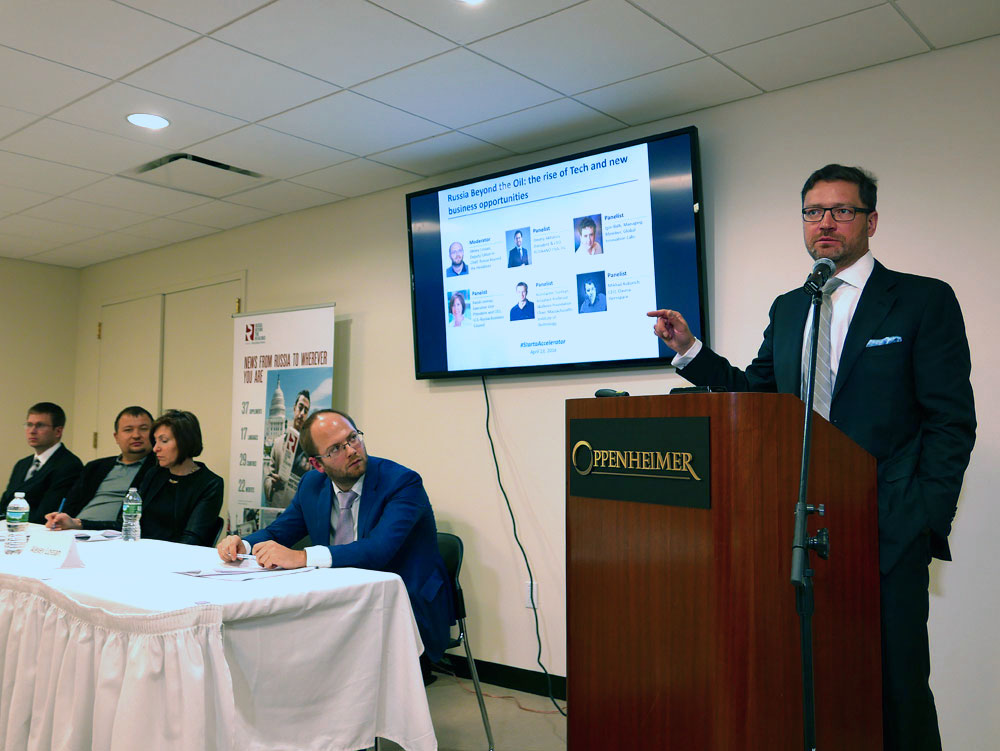
New York Forum
On April 13, Russia Beyond the Headlines conducted a panel discussion entitled "Russia Beyond The Oil: Rise of Tech and New Business Opportunities" as part of the Start-Up-Grade:Tech Beyond the Borders forum in New York. The panel was organized with the support of the Trade Representation of the Russian Federation in the United States and the investment company Starta Capital.
Members of the panel included leaders in the tech innovation sector based both in Russia and the U.S. Randi Levinas, executive vice president of the U.S.-Russia Business Council, kicked off the discussion, noting that the development of technology is a basic prerequisite for the diversification of the Russian economy and the reduction of the share of oil in the country’s GDP. According to Levinas, while a full-fledge reduction of Russian dependence on oil will require structural reforms, it is a necessity, since if the price of oil is at $100 a barrel, it will provide the Russian economy with only a 1.5 percent rate of growth per year. Currently the price of oil is less than half that.
Importance of R&D
Levinas put the problem in another context, stating that in 2000, oil accounted for about 10 percent of Russia's GDP. By 2010, that number had risen to 60 percent. Last year, taxes on raw materials made up 43 percent of the Russian budget’s revenues, and little is being done to change the situation. To date, less than 10 percent of Russia companies are investing in R&D, while in Germany this figure exceeds 70 percent.
"The interaction of the Russian market with world leaders is needed to speed up development of technology, said Levinas. Some notable examples of this are the Skolkovo Innovation Center in southwest Moscow and the special economic zone Innopolis in the Republic of Tatarstan, which is dedicated to the development of IT.
The panelists agreed that developing a culture of innovation in Russia required an investment in education. "Russia is still strong in terms of education, which has been proven, among other things, by the experience of Skoltech [the Skolkovo Institute of Science and Technology], which was created with the help of MIT. Much in the country will change, if you develop education," said Konstantin Turitsyn, an associate professor and holder of the Skolkovo Foundation Chair at MIT.
According to Turitsyn, the Russian economy, like any global economy, is faced with two paths when considering how to develop high-tech products – to adapt foreign technology, or develop its own. So far, Russia has taken the former path and succeeded in this, as evidenced by the experience of Skolkovo, but, he added, Russia has an opportunity to develop its own technologies.
Looking for funding
Such development will require investment, and Dmitry Akhanov, the president of Rusnano USA, said the country should be able to find it. “The Russian market is still interesting for foreign investors," Akhanov said, pointing out that today the cost of labor is lower in Russia than in China, and the quality of the labor force allows companies to produce advanced, innovative products without investing additional resources in employee training.
Additionally, Russian companies are interested in attracting international investment and entering the U.S. market, Akhanov said. One of the main barriers to entry for Russian companies that want to work in the U.S. is lack of information, according to Mikhail Kokorich, co-founder of Russia's largest private space company, Dauria Aerospace. Russian companies should work on raising their profile among international investors and consumers.
The discussion was moderated by Alexey Lossan, deputy chief editor of Russia Beyond the Headlines, who also presented a new RBTH project – the business magazine Doing Business With Russia. The first issue focuses on strengthening business relationships between Russia and the U.S. and offers a collection of case studies of Russian companies operating in the U.S. market, as well as examples of U.S. companies finding success in Russia.
Subscribe to get the hand picked best stories every week
All rights reserved by Rossiyskaya Gazeta.
Subscribe
to our newsletter!
Get the week's best stories straight to your inbox
